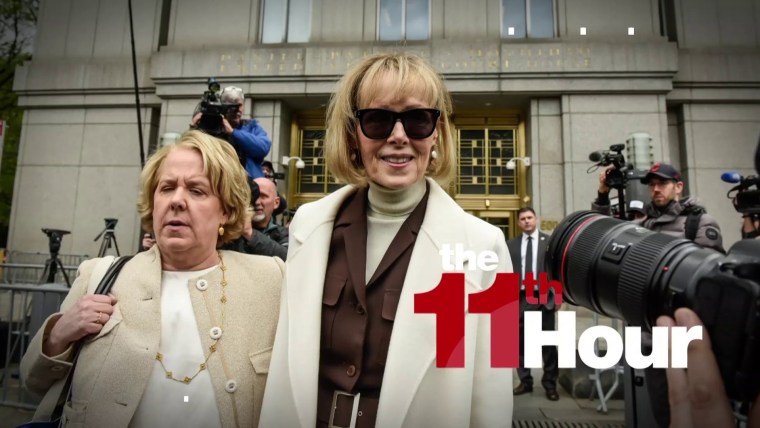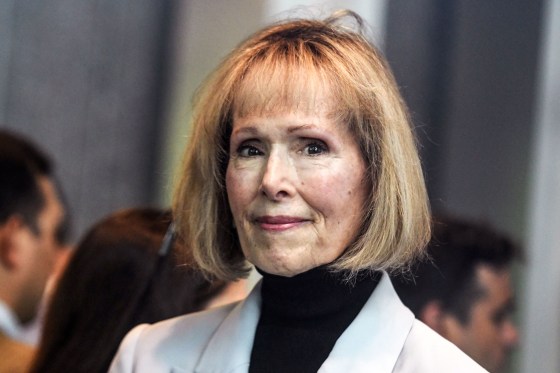Defamation cases aren’t just about what people said. They’re also about what people did. And sometimes a single legal case isn’t just about that case; it is about all the cases that will come after it.
Since April 25, an anonymous jury in a Manhattan courtroom has heard journalist E. Jean Carroll’s lawsuit against former President Donald Trump alleging defamation and battery. On Tuesday, the jury found Trump liable for defamation and sexual abuse, though not liable for her alleged rape, and awarded Carroll $5 million.
Carroll was able to allege battery (which in this case means sexual assault) thanks to an unusual law. She accused Trump of raping her in the 1990s, outside New York's statute of limitations. But last year, the state passed a law creating a one-year window for victims of sexual offenses to file civil suits even if the statute of limitations had expired.
Not all alleged victims whose charges fall outside the statute of limitations will be able to count on such temporary measures. But they could find a path to justice in the other half of Carroll’s allegations: defamation. Her defamation case hinges on Trump’s denial of her allegations. The former president, in a typically vile denial, said Carroll’s case was “a Hoax and a lie” and a “complete con job.” He also repeated a claim he made previously: that he didn’t rape Carroll because she’s not his “type.” This is, of course, a curious defense — particularly when Trump confused Carroll with his second wife, Marla Maples, who, as Trump confirmed under oath, was his type because he married her.
Not all alleged victims whose charges fall outside the statute of limitations will be able to count on such temporary measures.
Truth is a complete defense to a claim of defamation. Therefore, while this defamation case played out in a civil courtroom, not a criminal one, part of this case was about whether the jury believed Carroll when she said Trump raped her, or believed Trump when he said he did not. In this way, Carroll’s case provides a road map for other alleged victims, whose claims may be too old for criminal charges, but can still play out in a court of law and obtain legal remedies.
Defamation cases, therefore, are a backdoor way of litigating claims of sexual assault, even if not in a criminal courtroom. This almost happened when seven women accused Bill Cosby of sexual abuse. Cosby, like Trump, denied those charges and called the women liars. That case settled, but if it had gone to trial, it would have brought up legal questions similar to the ones at issue in Carroll’s suit.

Carroll’s defamation claim, like all other defamation claims, is based on when Trump uttered his allegedly defamatory statements, not when he allegedly assaulted her. Therefore, even though the time for criminal charges for the allegations has expired, the defamation claim helped ensure that Carroll has still had her day in a court.
Indeed, the mere act of filing a defamation suit is significant by itself. By responding to Trump’s awful denials with a legal suit, as opposed to simply responding outside of court, Carroll has underscored the seriousness of her allegations. Submitting her case to a court of law not only gives Carroll the possibility of legal recourse, it also signals to those outside the courtroom the urgency of her claims. Trump knows this very well. It is why, even when he has no chance of legal victory, he files and loses suit after suit after suit about everything from the 2020 election to news stories he dislikes.
While Trump’s litigious strategy has routinely been laughed out of court, Carroll’s could be viewed as a blueprint.
But while Trump’s litigious strategy has routinely been laughed out of court, Carroll’s could be viewed as a blueprint for other alleged victims of sexual assault. Her case is not the first case to grow out of the #MeToo movement. It is not the first case brought against an extremely powerful man. But there are plenty of historic firsts in this case. Most notably, Trump is the first former president to face a defamation suit stemming from a claim of battery.
And historic firsts pave the way for the seconds and the thirds. The next woman who is victimized by a powerful man who then denies that he engaged in wrong behavior does not have to wonder if she can find any recourse in a courtroom. She can. Carroll’s case — and her bravery — teaches us that.

